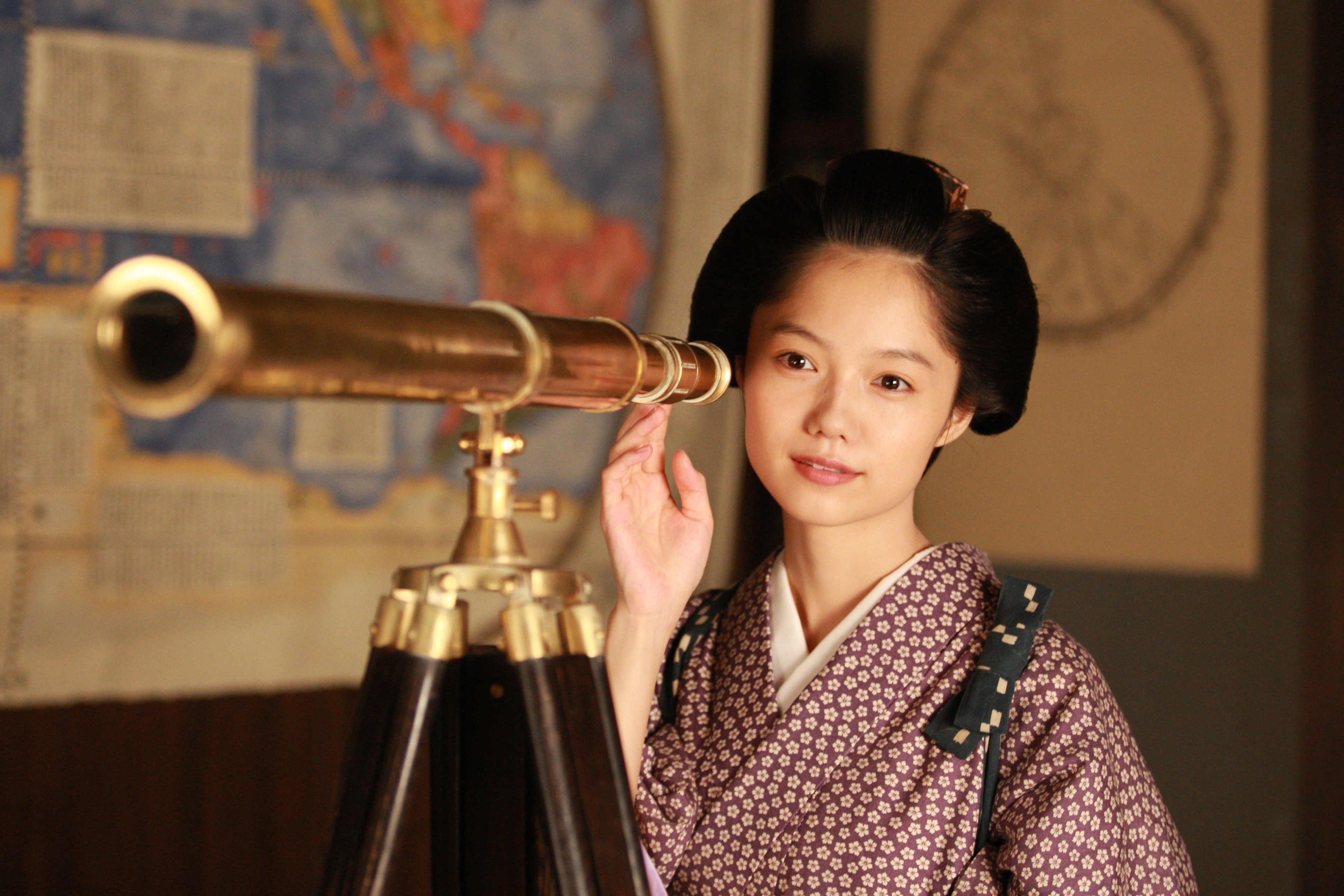Tenchi: The Samurai Astronomer is a film by the Japanese Academy Award winning director Yojiro Takita, and was the selection for the opening of the Toronto Japanese Film Festival.
This film is ultimately a coming-of-age tale that follows Santetsu Yasui’s (Junichi Okada) evolution from a clumsy, unreliably absent-minded Go-player with a love of mathematics, into a dependable and honourable mathematician, astronomer, and inventor of the Jokyo calendar.
The beginning of the story finds the awkward Santetsu late for an exhibition Go-game because he stops to admire mathematical puzzles by mystery mathematician Takakazu Seki (Kamejiro Ichiwawa), the first of many mentors that help Santetsu in his journey. Clan lord Hoshina Masayuki (Koshiro Matsumoto) recognizes Santetsu’s love of astronomy and puzzles, and hires Santetsu to help with an expedition that intends to map all of Japan using the North Star.
As he sets out on this year-long journey, Santetsu leaves behind the beautiful En Murase (Aoi Miyazaki) with a promise to wed her on his return. He is delayed, and during the journey the flaw in the traditional Japanese calendar is discovered and his lord appoints him to create a new, accurate national calendar for Japan.
The film is based on a true story with real historical figures, and so it is interesting to note that it is also a well-balanced introductory snapshot of life in Tokugawa Japan (1603-1863). This is a period of turbulent change in Japanese history, one where the Emperor’s court was reduced almost to mere figurehead status as the Shogunate (samurai-ruled military government) led Japan into centuries of political stability.
Each new struggle that Santetsu encounters in the film while completing his mission offers insight into the many struggles faced by citizens of the Tokugawa period. All conflict that he is faced with seems to showcase a unique difficulty imposed on society by the two governments and newfound Japanese prosperity and national pride. Though the country was under stable leadership for over two hundred years, the society created by the Shogunate was one that isolated itself from influence of other countries and was characterized by immoveable social hierarchies.
The showdown of power dynamics between the Shogunate and the Emperor’s court during this period is a crucial element to the film’s progression. Santetsu’s mission is hindered by the Imperial court’s refusal to acknowledge any scientific developments influenced by European or Chinese thought, meanwhile the Shogunate champions scientific progress that benefits Japan regardless of the source of knowledge. Santetsu must think of a clever way to earn the general population’s approval of his new calendar in order to force the Emperor’s goons into accepting change, and so his past experience as a master of Go-games becomes crucial his plan to secure public interest.
While this larger conflict is playing out, Santetsu must also deal with earning respect and approval from several mentors who nurture his developing character and intellect. Sometimes his obligations to honour his mentors comes into conflict with his obligations to honour his love interest En, who plays the traditional role of the patient damsel waiting to finally be married to the hero. This conflict of obligations is also characteristic of the period, and Santetsu must navigate the pressure of fulfilling all of the requirements of becoming a successful and honourable citizen in the eyes of his mentors, friends, En, and En’s brother.
Tenchi: the Samurai Astronomer comments on so many aspects of culture in this period. It is lengthy and the plot is complex, but the audience is drawn in and commits to the film because of the overlying hero-story present in Santetsu’s endearing journey to maturity and national hero status, and because of a storyline that is rich with fascinating historical tidbits. The historical reality and the quirky fictional aspects of the journey are expertly woven together with the technical production of the film to create an aesthetically pleasing and whimsical cinematic experience.
The Japanese Canadian Cultural Centre hosts the Toronto Japanese Film Festival at 6 Garamond Court. The festival is currently underway, with the closing night film and festivities taking place on June 28.



